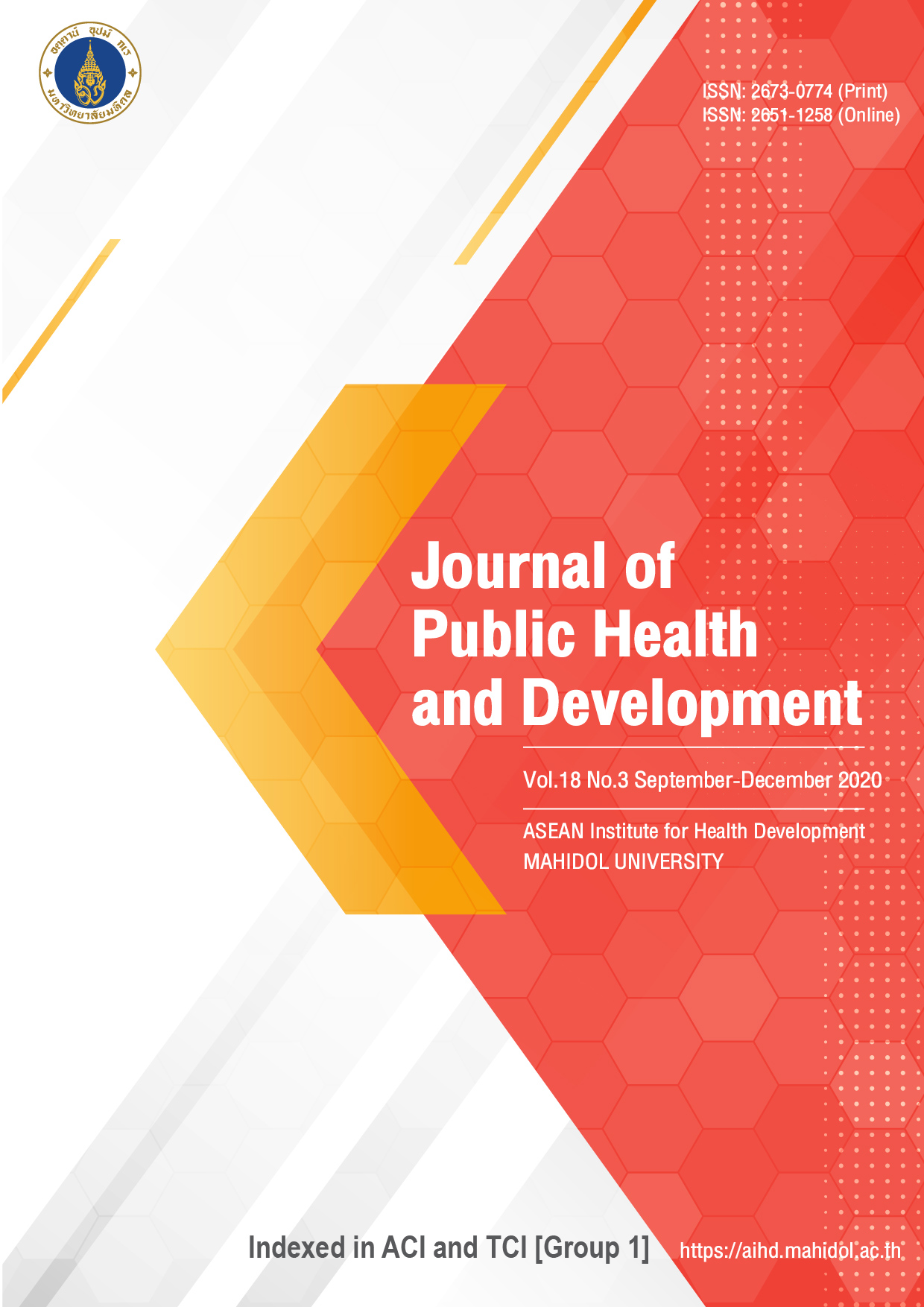A nationwide assessment of the knowledge, attitude and practices among Filipino physicians on ethical relations with the pharmaceutical industry
Main Article Content
Abstract
Physician interaction with the pharmaceutical industry has effects on drug prescribing practices. Policy regarding prescribing practices is important in countries with high drug prices such as the Philippines. In 2015, the Philippine Department of Health (DOH) and the Food and Drug Administration (FDA) adopted the Mexico City Principles (MCP), as an enforceable code of business ethics guiding pharmaceutical industry engagement with physicians. Although the MCP applies to the pharmaceutical industry, identifying physicians’ baseline knowledge, attitudes, and practices with regard to ethical relations with the pharmaceutical industry helps elucidate the former’s vulnerability to inducement. Information from the literature and consultations with stakeholders was incorporated to develop a validated survey tool. After pre-testing, the survey was deployed through medical societies and professional networks, following purposive maximum variation sampling. Around 30% (2,030 of an estimated 6,900 physicians) responded. Only 53.0% (1,080) of the respondents were aware of the MCP and 334 (16.45%) reported that they had not previously heard of it. There was a favorable attitude towards industry relations perceived as benefitting patients and facilitating information exchange, even when respondents recognized that these interactions influenced an increase in medicine prescribing. Respondents reported that peers practice “excessive” interactions with pharmaceutical companies; however colleagues and role models in their workplaces deemed these acceptable. Awareness of the concept of conflict of interest was low. These findings suggest the need to increase physician’s awareness of the MCP as rules that the pharmaceutical industry must follow. The awareness must be accompanied by recognition that industry influences on their practice affect patient care. An enabling environment and role modeling are crucial to institute ethical attitudes and practices in healthcare education and workplaces. Recognition and management of pharmaceutical industry-related conflict of interest should be introduced early among would-be physicians through training institutions, hospitals and professional societies.
Article Details
References
Philippine Statistics Authority. Total Health Expenditures grew by 8.3 percent in 2018 [Internet]. 2018 [Cited 2020 Jun 10]. Available from: https://psa.gov.ph/content/total-health-expenditures-grew-83-percent-2018
Wall LL, Lewis Wall L, Brown D. The High Cost of Free Lunch. Obstet Gynecol 2007;110: 932–3.
Orlowski JP, Wateska L. The Effects of Pharmaceutical Firm Enticements on Physician Prescribing Patterns. Chest 1992; 102: 270–3.
Dana J, Loewenstein G. A social science perspective on gifts to physicians from industry. JAMA 2003;290(2):252–5.
Schott G, Dünnweber C, Mühlbauer B, Niebling W, Pachl H, Ludwig W-D. Does the pharmaceutical industry influence guidelines?: two examples from Germany. Dtsch Arztebl Int 2013;110(35-36):575–83.
The World Health Organization ethical criteria for medicinal drug promotion [Internet]. Pharmaceutical Medicine [Internet]. 2013. Available from: http://dx.doi.org/10.1093/ med/9780199609147.003.0112
Government of Canada, Innovation, Science, Economic Development Canada, Office of the Deputy Minister, Strategic Policy Sector. The Mexico City Principles for Voluntary Codes of Business Ethics in the Biopharmaceutical Sector [Internet]. 2012 May 16 [cited 2020 Jun 10]. Available from: https://www.ic.gc.ca/ eic/site/csr-rse.nsf/eng/rs00594.html
Food and Drug Administration. FDA Circular No. 2013-024 Adoption and Implementation of “The Mexico City Principles for Vocabulary Codes of Business Ethics in the Biopharmaceutical Sectors” [Internet]. [Cited 2020 Jun 10]. Available from: https://ww2.fda.gov.ph/index.php/issuances-2/others-laws-and-regulations-not-applicable-to-the-above-categories/others-fda-circular/103511-fda-circular-no-2013-024
Department of Health Administrative Order No. 2015-0053 Implementing Guidelines on the Promotion and Marketinq of Prescription Pharmaceutical Products and Medical Devices [Internet]. [cited 2020 Jun 10]. Available from: https://ww2.fda.gov.ph/index.php/issuances-2/cdrrhr-laws-and-regulations-pertaining-to-all-regulated-medical-devices/cdrrhr-administrative-order/323886-administrative-order-no-2015-0053#:~:text=Implementing%20Guidelines%20on%20the%20Promotion%20and%20Marketing,Pharmaceutical%20Products%20and%20Medical%20Devices&text=As%20provided%20by%20the%201987,15%2C%20Art.
Pacific Bridge Medical. Philippines Drug Market Update. Pacific Bridge Medical [Internet]. [Cited 2020 Jun 10]. Available from: https://www. pacificbridgemedical.com/publication/philippines-drug-market-update-2017/
Jahoda M, Fishbein M. Readings in Attitude Theory and Measurement. Br J Sociol 1986;19:220.
Ajzen I, Heilbroner RL, Fishbein M, Thurow LC. Understanding Attitudes and Predicting Social Behavior. Prentice Hall. 1980; 278.
Godin G, Bélanger-Gravel A, Eccles M, Grimshaw J. Healthcare professionals’ intentions and behaviours: a systematic review of studies based on social cognitive theories. Implement Sci 2008;3:36.
Lotfi T, Morsi RZ, Rajabbik MH, Alkhaled L, Kahale L, Nass H, et al. Knowledge, beliefs and attitudes of physicians in low and middle-income countries regarding interacting with pharmaceutical companies: a systematic review. BMC Health Serv Res 2016;16:57.
Lieb K, Scheurich A. Contact between doctors and the pharmaceutical industry, their perceptions, and the effects on prescribing habits. PLoS One 2014;9(10):e110130.
Al Zahrani HS. The impact of pharmaceutical promotions on primary health care physician’s prescribing behaviour in KAMC in central region. Int J Med Sci Public Health 2014; 3(3):358-364.
Siddiqui UT, Shakoor A, Kiani S, Ali F, Sharif M, Kumar A, et al. Attitudes of medical students towards incentives offered by pharmaceutical companies- perspective from a developing nation- a cross sectional study. BMC Med Ethics 2014;15(1):1–10.
Alkhaled L, Kahale L, Nass H, Brax H, Fadlallah R, Badr K, et al. Legislative, Educational, Policy and Other Interventions Targeting Physicians’ Interaction With Pharmaceutical Companies: A Systematic Review. BMJ Open 2014; 4(7).


